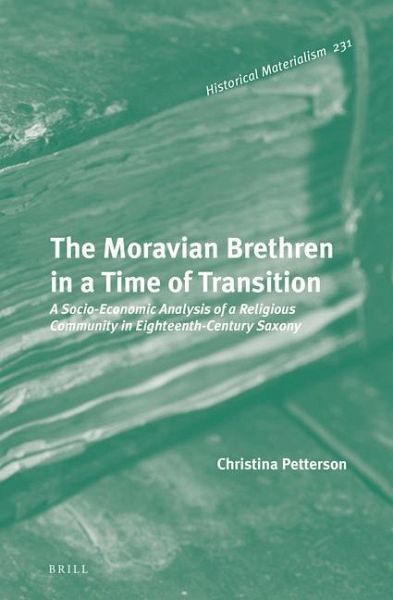
The Moravian Brethren in a Time of Transition
A Socio-Economic Analysis of a Religious Community in Eighteenth-Century Saxony
Versandkostenfrei!
Versandfertig in über 4 Wochen
221,99 €
inkl. MwSt.
Weitere Ausgaben:

PAYBACK Punkte
111 °P sammeln!
In The Moravian Brethren in a Time of Transition Christina Petterson combines archival analysis with socio-economic change to demonstrate the importance of the Protestant sect, the Moravian Brethren, as an example of the reconfiguration of communities in early capitalism.












